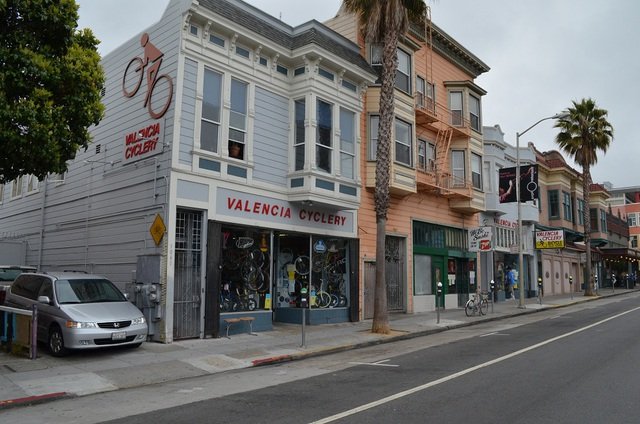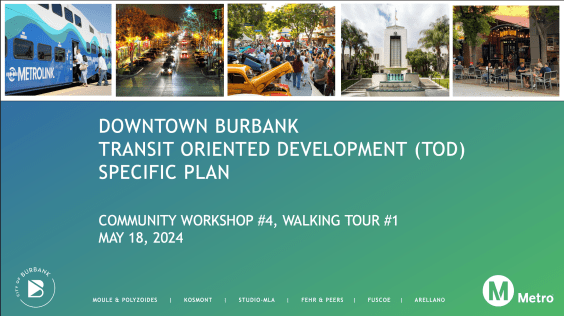Safe-streets advocates were taken aback by a letter that appeared in the San Francisco Chronicle trying to put the brakes on calls to ban private cars from Valencia. What made this stand out was who it came from--Paul Olszewski, owner of Valencia Cyclery.
From his letter:
Most of our new bike customers drive here and return home with their new bike in their car. This is especially true for children’s bikes. Likewise, a lot of bicycles in need of repair are not rideable, and are driven here to be fixed. Parking on the street has gotten prohibitively expensive and harder to find. Many parking spaces are taken by the banks of share-rental bikes and parklets. It seems that our bike lane will soon become a “protected bike lane,” which inevitably results in even more spaces lost. If the city is truly interested in keeping small businesses, especially legacy businesses, alive and well, then there needs to be a balanced use of our public streets.
He also wrote that "Doing business in San Francisco has gotten to be increasingly difficult for a number of reasons, including the lack of parking. If cars were banned completely on Valencia Street, we would probably have to close."
Bike advocates jumped on Olszewski via social media:
Wow, I now regret ever shopping at Valencia Cyclery (only once, to buy a helmet)
— Roan Kattouw (@catrope@mas.to) (@catrope) February 11, 2020
And Dave Snyder, executive director of the California Bicycle Coalition, wrote this:
They were not initial supporters of the Valencia street bike lanes 20 years ago, so this is consistent.
— Dave Snyder (@dave_bikes) February 10, 2020
Indeed, as Snyder points out, many merchants made similar claims about Valencia's current bike lanes, which facilitated its transformation into a major bike corridor in the first place. Since they were installed, the street--and businesses on it--have flourished. Other people pointed out that there will still be parking on adjoining streets and that there's a parking lot a two-minute walk from Olszewski's shop:
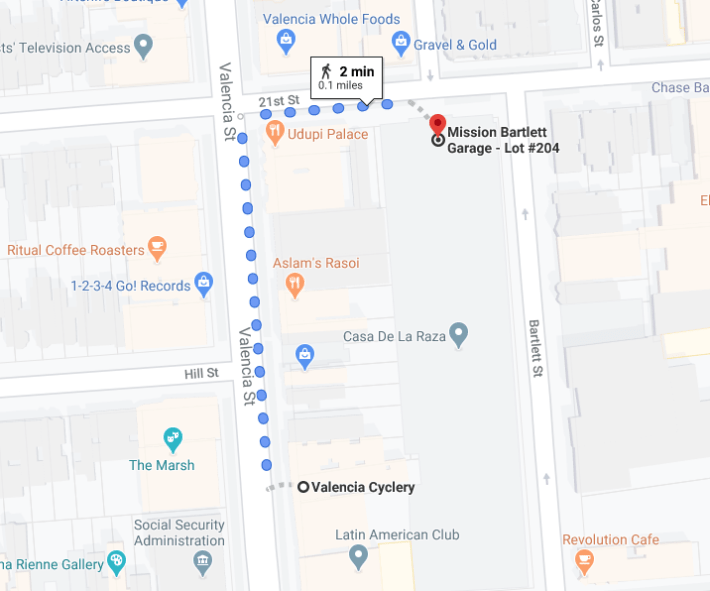
And, of course, there's the 24th and Mission BART Station, eight minutes by foot or two minutes by bike. And there are several Muni lines.
Streetsblog stopped by the shop Wednesday evening. Olszewski was out, but Philip Shain, who works in the repair shop, said that recreational cyclists drive to the shop to buy and repair BMX bikes. Shain and a manager at Valencia Cyclery also pointed out that street parking is important for neighboring businesses.
Maybe that's true for the customers (and business owners) who prefer to drive. But there's growing evidence, from New York, overseas, and even from Oakland, that cars and parking are not at all key to keeping businesses going. And customers who bike, walk, and use transit will find getting there much easier and safer.
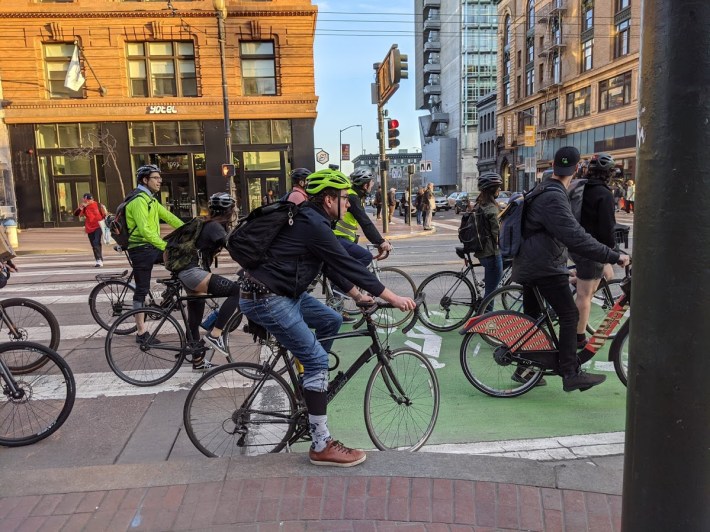
Bike shop owners on nearby Market Street, where private cars were recently banned, agreed that Olszewski's concerns are overblown.
Barry Grosfield, manager of Huckleberry Bikes on Market, said that while some customers may go elsewhere, "you just get a new batch of people who uses buses, bikes, BART--you don't have to worry about parking." Kash, the owner of Warm Planet Bikes, also on Market, told Streetsblog that anything that makes it safer and more comfortable for cyclists gets more people--especially families--willing to bike.
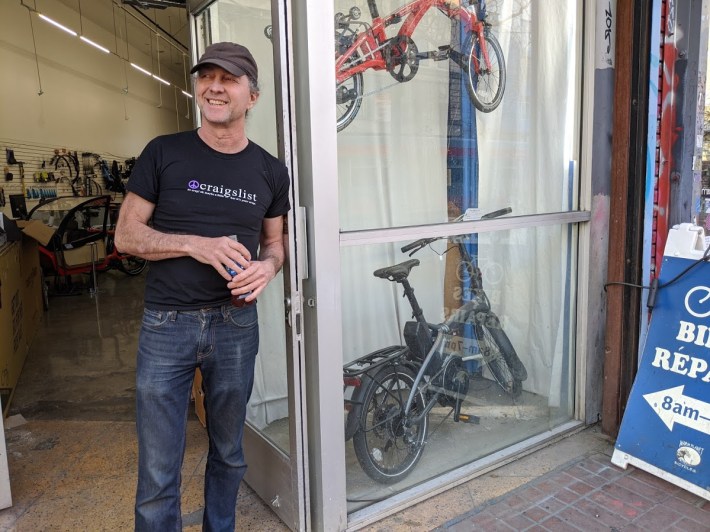
That translates into more customers for his shop, including parents looking for cargo bikes, which he sees as a growing part of his business. "If Valencia [Cyclery] has such a lack of confidence in their customers, then I will take all of them," he added.
In Streetsblog's view, Kash is absolutely right: a car-free Valencia or the installation of well-designed protected bike lanes and intersections will go a long way towards encouraging families to cycle, in addition to reducing crashes and injuries. So even if Olszewski doesn't prioritize safety over convenient car parking as a worthy goal on its own, he should at least consider that more cyclists means more customers--not to mention that live cyclists spend more money than dead ones.
Reminder: Monday, Feb. 24 is SFMTA's 'Valencia Bikeway Improvements (19th Street to Cesar Chavez) Open House and Public Hearing.' That's Monday, Feb. 24., 6-8 p.m., City College San Francisco Mission Campus, 1125 Valencia Street.
